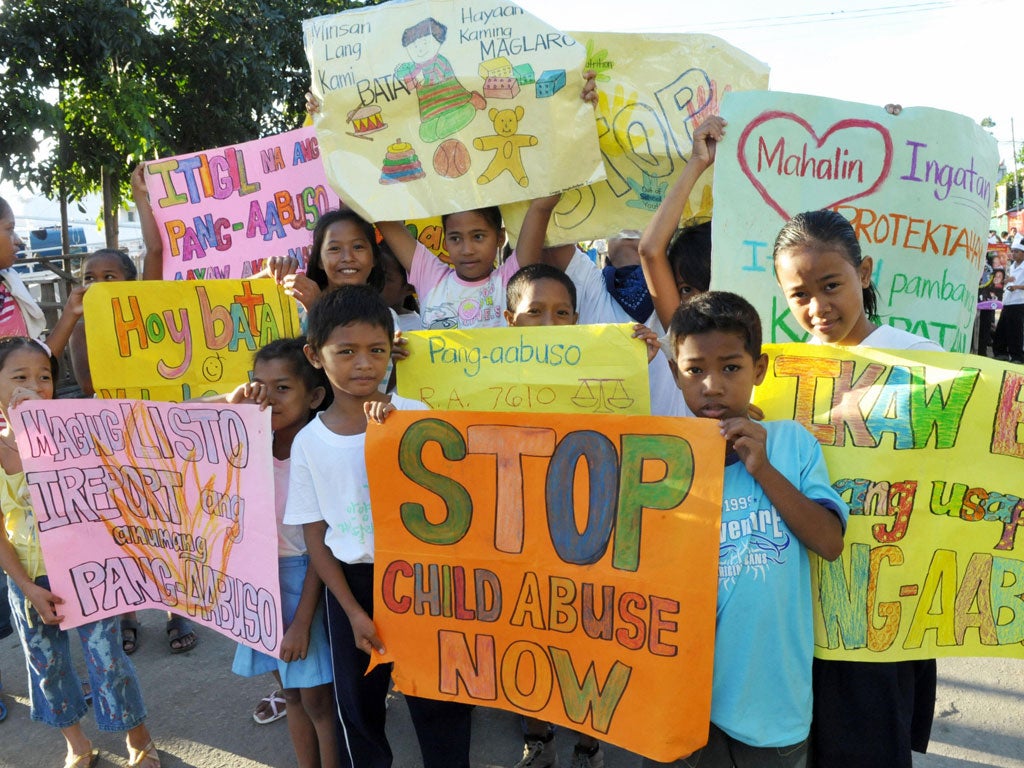A lot has changed since Jimmy Savile's time, but shame and stigma still allow sex abuse to thrive
If abuse survivors don't feel comfortable talking openly about their experiences, we're adding unnecessary shame to all the trauma they've already suffered

There has been much written in the last few weeks about the recent allegations that Jimmy Savile, one of Britain’s most popular showbiz personalities for over four decades, was in fact a predatory pedophile. People have pointed to the culture of silence around the issue of sexual abuse at the time, which they say facilitated his actions.
There is no doubt that things have changed since then, but to suggest that we live in an altogether different reality today is ludicrous. It is still taboo to discuss child sexual abuse (CSA) openly, and as a result a social climate continues to exist which not only allows it to thrive, but carries the danger of further harming survivors in the process.
Around one in four people from all walks of life are survivors of CSA, and the effects are often devastatingly far reaching. Many go on to develop conditions such as Post Traumatic Stress Disorder (PTSD), or in the case of ongoing abuse, Complex PTSD.
Yet I imagine comparatively few would feel comfortable in openly and freely sharing their circumstances, in contrast to the lack of stigma associated with disclosing a physical condition, for example.
Some may argue that due to the personal nature of abuse, people wouldn’t want to openly admit to having been affected by it. While this will be true for some survivors, this does not justify the lack of a choice, and indeed, the fear of potential consequences only mirror the perceived risk of disclosure many survivors felt as children.
If society provided an open forum that enabled every survivor to feel able to talk frankly about the abuse and its effects if they wanted to, the security of this knowledge would arguably go a long way in aiding their recovery. It would remove the unnecessary layer of potential anxiety of feeling like it is something socially unacceptable to divulge, and allow them to instead focus on the healing process itself.
When I first wrote about the culture of shame around CSA for The Independent in May , it quickly became apparent from the reader comments that many simply refused to believe the one in four statistic, further reinforcing the view that a blind eye is often turned to child sex abuse in society.
Eliminating the shadowy stigma around CSA would hopefully lead to the general public more readily acknowledging the true extent of the problem, and would also enable the three in four majority to gain a deeper understanding of the issues faced by survivors.
Ultimately, all this would provide an environment where abuse was less likely to take place to begin with. This would in turn serve to reduce the number of people suffering with mental health conditions, alcoholism, drug addiction and other social ills that are often rooted in abuse.
Yet the matter appears low on the Government’s agenda, with funding recently cut for key charities like One in Four UK, one of the few organisations offering specific CSA therapy. And why isn’t there a major ad campaign? Or a tour of all schools educating children from a young age about the various issues specifically around CSA?
As for the media, how often is sexual abuse tackled in soaps and magazines, and where are the regular and realistic representations of survivors?
But in addition to major institutions like the media and the government, the onus is on us as individuals, who after all, make up society.
Just as the entertainment industry colluded with Jimmy Savile by providing a culture of silence, it can be argued that we as a society are also guilty of colluding with abusers in a sense. By not taking the one in four statistic seriously, and by allowing a social climate to exist that renders it taboo for those affected by child sexual abuse to speak about it freely.
Join our commenting forum
Join thought-provoking conversations, follow other Independent readers and see their replies
Comments
Bookmark popover
Removed from bookmarks